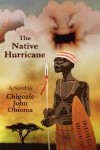Dan Holloway has been a regular commenter on my blog for a long time. I was aware that he’d written a book, but it wasn’t until I heard that it was a hommage to Murakami’s Norwegian Wood that I decided to buy a copy. I hadn’t read Norwegian Wood at the time and so decided to put Songs to one side until I’d completed Murakami’s book. Unfortunately due to its gentle nature Norwegian Wood turned out to be my least favourite Murakami, but I was still keen to see what Dan Holloway’s writing would be like.
Songs from the Other Side of the Wall centres on Szandi, an 18-year-old artist living with her girlfriend, Yang, in Budapest. Szandi’s English mother abandoned her as a baby, leaving her father to raise her on a 300-year-old Hungarian vineyard. This means that Szandi finds herself torn between East and West. The book is basically a coming-of-age story about one young woman trying to decide where she belongs in the world.
I belonged neither in the West nor the East, neither with Mum nor Dad. For a few minutes it felt like I existed not in but alongside the world. I travelled through the space where everyone else lived and breathed and laughed and cried, only I was in a parallel universe, like theirs in every way except I was the only person there. The two worlds spent eternity almost but not quite brushing against each other – hearing the occasional whisper from somewhere they couldn’t quite place; but never leaving even the smallest footprint on each other.
The pace of the book was quite slow, with everything described in beautiful, vivid detail. This was both a positive and a negative for me. At times I was completely immersed in Szandi’s world, loving the details. This was especially true for the sections that took place on her father’s vineyard – my love for wine and good food was rewarded with some of the most mouth-watering descriptions of food I have ever read. Unfortunately I don’t have a real interest in art or music and so these sections were lost on me. Song lyrics, descriptions of concerts and sculptures all failed to interest me, but I can see that art lovers would probably adore them.
For much of the book Szandi is traumatised by the death of a woman called Claire. Claire was crushed during a riot in Romania, her death recorded and distributed on the Internet. The Internet plays a big role in this book, with Szandi’s blog making frequent appearances. I found that I lost interest whenever her blog was shown. It was an accurate reflection of blogging, but when reading a book I just don’t care about the comments of random people and I found that the Internet messaging lacked emotion and ruined the flow of the story for me. If anything can be learned from this it is that we should stop blogging and concentrate on living in the real world!
Overall I’d say that there are a lot of fantastic sections in this book. It is a complex, literary novel with many layers, but I’d only recommend it to people who enjoy reading about art and music.
If you are interested in reading Songs from the Other Side of the Wall you can download it for free from Dan Holloway’s website. Details of how to buy a paperback copy are also listed there.
Dan Holloway is launching his new book on 7th July in London. Entry is free and the good news is that the first five people to mention my blog will recieve free copies of Songs and his new poetry collection.
Have you read Songs from the Other Side of the Wall?
Have you found a book that makes blogging interesting?



